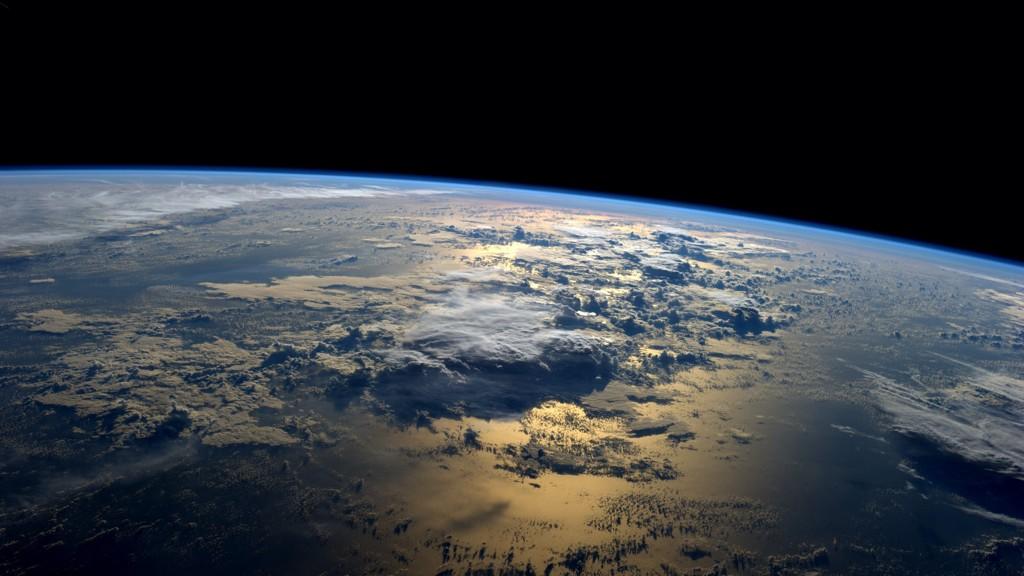
Astronaut Reid Wiseman’s view of Earth for the International Space Station; https://www.nasa.gov/content/earth-right-now-image-gallery/#lowerAccordion-set3-slide24
Suspended in the midst of seemingly desolate stardust, the Earth twinkles with life. Nestled on this phenomenal orb, we human beings are able to experience and grapple with the privilege of existence. Yet somehow, despite having only flourished for an infinitesimal portion of the Earth’s history, we may be initiating the onset of our own demise. How can it be that we consciously and rapidly damage our lone home? More importantly, how do cease such deleterious behavior?
Systems theorists, economic theorists, and philosophers tell us that we need a new story, a new potent paradigm that informs our daily actions (Meadows, Korten, Hamiliton). The Overview Institute and Fragile Oasis, two organizations determined to inspire humanity with the Overview Effect, believe a new mindset can emerge by considering—or rather observing— the Earth itself. The Overview Effect “refers to the experience of seeing firsthand the reality of the Earth in space, which is immediately understood to be a tiny, fragile ball of life, hanging in the void, shielded and nourished by a paper-thin atmosphere” (Ahmadi). Occupied with the chaos of our daily lives, many of us forget that the Earth—and hence humanity—is an anomaly; the Overview Effect therefore reacquaints us with “big picture” and moves us towards more conscious conduct.
Thus, the awe arising from the Overview Effect could be the force necessary to overcome our societal inertia regarding climate change. Professors of psychology Dacher Keltner and Jonathan Haidt submit “nature-produced awe involves a diminished self, the giving away of previous conceptual distinctions (e.g., between master and servant) and the sensed presence of a higher power” (Keltner). Awestruck, we empathize with the single living system that is Earth. Absorbing the grandeur of the globe, we consider humanity in the context of our improbable planet; from space, we are but one small element of the whole. From such a realization stems a sense of gratitude, a duty to steward our home.
At first, mitigating global hardships with the Overview Effect may seem inefficient or perhaps even inconsequential. Indeed, I initially deemed it an indirect and thus ineffective mean of combating climate change. However, I have since found that mere contemplation of Earth in the scope of the universe is enough to elicit feelings of invigoration, pride, and duty. I now believe that awe can galvanize the transformation we require. In any event, the Overview Effect reaffirms that which we cannot escape: together we exist on this mysterious sphere in the vastness of space.
Works Cited
Ahmadi, Ammar. “Declaration of Vision and Principles.” The Overview Institute, The Overview Institute, 2012, www.overviewinstitute.org/index.php/about-us/declaration-of-vision-and-principles.
Hamilton, Clive. Defiant Earth: the Fate of Humans in the Anthropocene. Read How You Want, 2017.
Keltner, D., & Haidt, J. (2003). Approaching awe, a moral, spiritual, and aesthetic emotion. Cognition & Emotion,17(2), 297-314. doi:10.1080/02699930302297
Korten, David. “A New Story for a New Economy.” YES! Magazine, YES! Magazine, 9 Feb. 2016, www.yesmagazine.org/happiness/a-new-story-for-a-new-economy.
Meadows, Donella. “Leverage Points: Places to Intervene in a System.” The Academy for Systems Change, The Academy for Systems Change, donellameadows.org/archives/leverage-points-places-to-intervene-in-a-system/.
